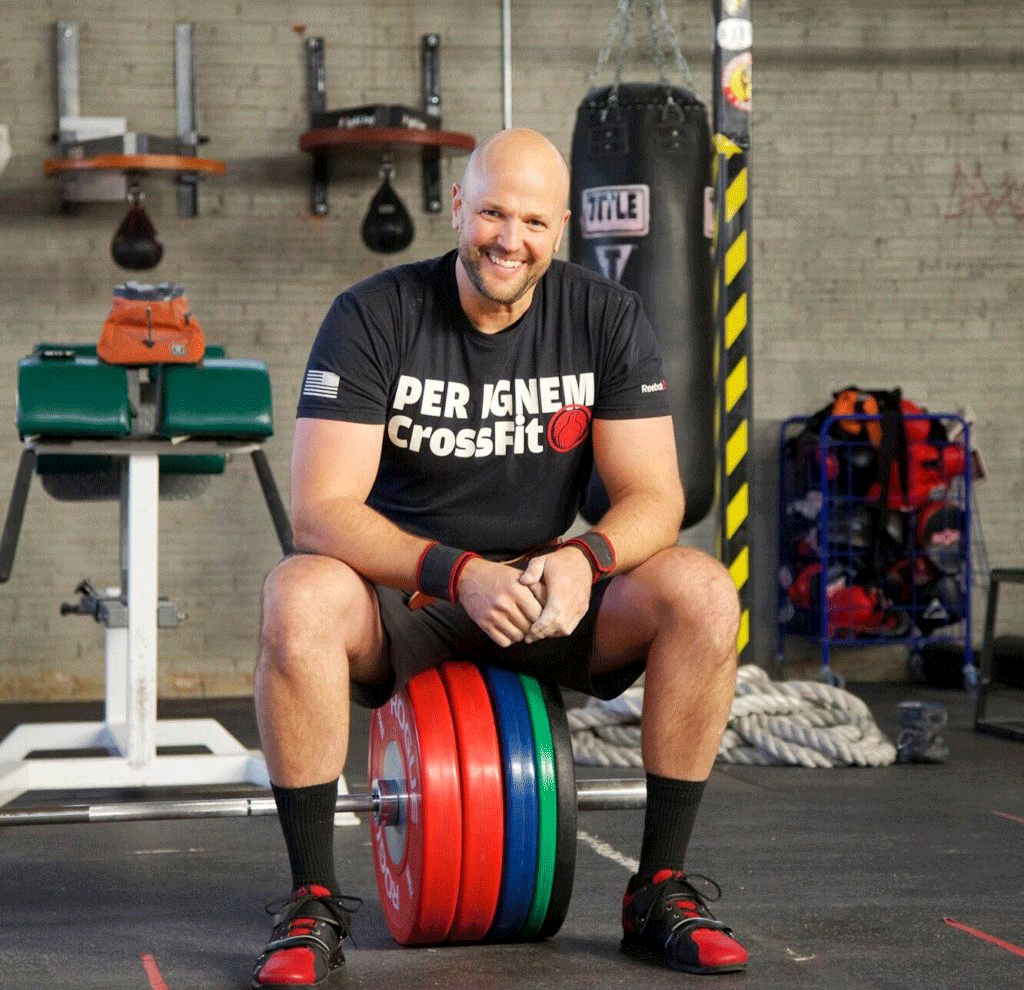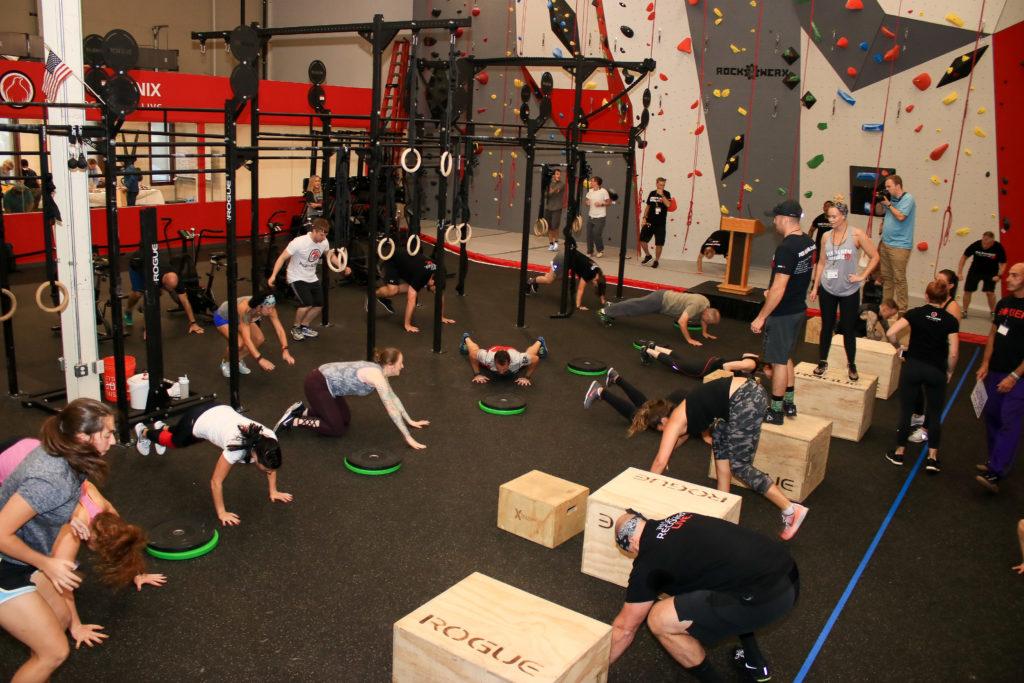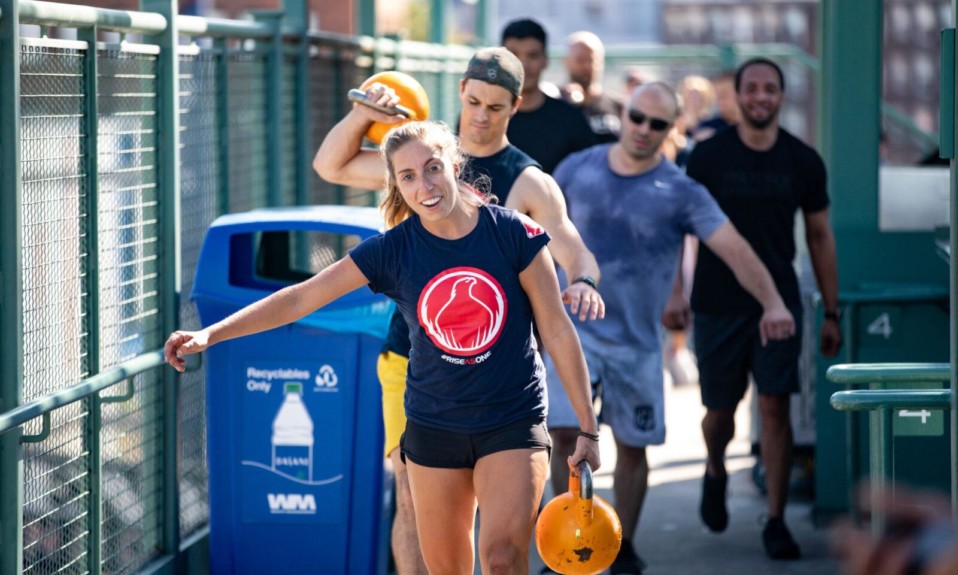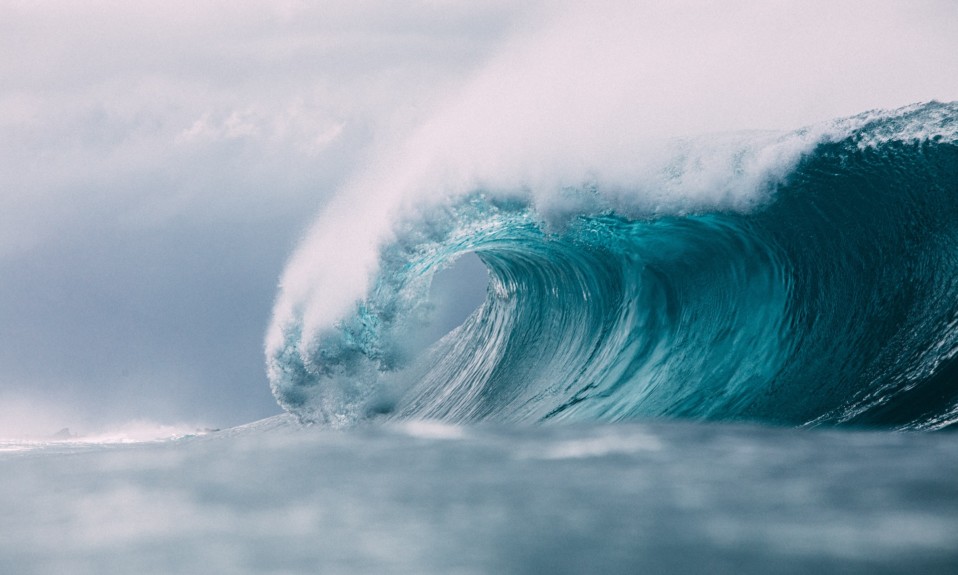The Denver-headquartered recovery support program mines the power of intense physical pursuits to give its participants a new lease on life
By William Wagner
September 2, 2020If you were to create a theme song for The Phoenix, it would be an amalgamation of “People Have the Power” by Patti Smith and “Gonna Fly Now” from the movie Rocky.
The themes of those two songs center on empowerment and enlightenment, with a little butt-kicking mixed in. They sync right up with the mission of The Phoenix. Founded in 2006 as a free recovery support service and headquartered in Denver, The Phoenix quite literally helps to push addicts up from the ashes.
Forget the semi-somber image of a room filled with inert, coffee-chugging folks who are discussing the horrors of addiction and the challenges of recovery. The Phoenix is all about movement—climbing, mountain biking, hiking, boxing, trail running, yoga—and the sense of rebirth that comes with it.
“There have been experiential outdoor programs for years,” says Scott Strode, founder and national executive director of The Phoenix, who is celebrating 23 years of being sober and is an avid mountaineer. “What we have been very thoughtful of at The Phoenix is we don’t debrief an event or have a process group afterward. I know that what you see on top of a mountain and what I see on top of a mountain is going to be powerful for both of us. There’s just something about sharing it together that [means] we don’t have to process it. By processing it, sometimes you can actually devalue the experience. Whereas if we just have this intrinsic moment of self-efficacy that happens on top of a mountain, it starts to translate to other parts of our lives.”
I saw a gap in services. When people left formal treatment, there was very little that they could plug into.”—Scott Strode, founder and national executive director of The Phoenix
The “sharing it together” part is particularly important; hiking and running and climbing gain their resonance from the fellowship they engender. There is no substitute for battling through a tough workout or scaling a mountain peak with others, some of whom might be complete strangers before the action begins. That’s the way Tim Jean, who has been a participant in The Phoenix since 2019, sees it anyway.
“Everything The Phoenix stands for is something that is important to me as a person in long-term recovery,” Jean says. “The camaraderie within its community membership comes to mind as an integral piece for me. Being able to walk in, knowing that I’m entering a [gym] where I’m supported by likeminded people, is a breath of fresh air.”
The underlying purpose of this whirl of activity is to spur The Phoenix’s recovery community to look toward potential victories in the future rather than failures of the past. If you peruse the website, you’ll see colorful montages of smiling, energetic and sweaty people who are proudly clad in T-shirts emblazoned with words like “Sober.” As long as you’ve been clean for at least 48 hours, you’re welcome to join in.
“One of the things that’s really special about the [fellowship aspect] is we go on a trip every year to Moab, Utah, and we camp on the Colorado River, hike, climb, mountain bike and trail run,” says Strode. “We take about 200-plus people in recovery on that trip. Coming home after three days together, with skinned knees from the mountain biking and sore fingers from the climbing, some people don’t even know their new friends’ addiction stories. All they know are these beautiful memories they built together in the desert. It helps us start to look forward and dream of what’s possible.”

From its humble beginnings in Boulder, Colo., The Phoenix, according to Strode, has grown to serve 36,000 people in recovery who are spread over 22 states and almost 50 communities. The program has eight physical locations, with the two largest being in Denver and Boston, and volunteer networks set up in the areas where there isn’t a brick-and-mortar presence. Strode even did a Tedx Talk in 2016.
“I saw a gap in services,” Strode says of the recovery landscape when was in the early stages of his own sobriety. “When people left formal treatment, there was very little that they could plug into. If you found the right 12-step program, that was great, but not everybody was able to do that. Many people wound up searching, and what they found was actually a relapse. Ultimately, they would be put back into treatment. We thought, Why don’t we just share things that are meaningful to us? At the time, one of my friends was a climbing partner in recovery. Another of my friends who I’d climbed with was a clinical social worker. We put our heads together with a few other recovery friends, and The Phoenix was born.”
Strode says internal studies show that there’s a 14.8 percent relapse rate among active participants in the program (defined as people who attend three events over three months). He’s careful to point out, however, that The Phoenix is merely one pillar of recovery. Says Strode, “One of the [tenets in] our code of conduct is that we’re open to multiple recovery pathways. We’re another arrow in the quiver to support you in the recovery journey.”

The Phoenix’s model is designed to be stripped down and simple. As a nonprofit that provides free services, it depends on donations from individuals and foundations, partnerships with treatment centers and, of course, its far-flung network of volunteers.
“In the communities where we don’t have a building, we utilize other gym spaces,” Strode says. “For instance, if you own a yoga studio and you want to have a Phoenix event because you have a connection to our mission, we would find yoga volunteers in your community. You would open the doors to your yoga studio, and that would give Phoenix a home in your town. That’s how we’re able to scale up and get into so many communities.”
We all believe in our intrinsic strength—it’s just that our addiction story might sow some seeds of doubt. But at a place like The Phoenix, you can find that intrinsic strength again.”—Scott Strode
Volunteerism is at the heart of everything The Phoenix has done and hopes to do. “There’s something many of us in the recovery community know: Giving back helps that person,” Strode says. “All of the people who lead our events are peers in recovery. They’re sharing an activity that has been meaningful in their own recovery journey. With our cycling instructor, cycling is a big part of his own sobriety; he is now sharing it with other people. Same thing with the coach at the gym who teaches the workout or the yoga instructor who’s leading the class. It just grows on its own.”
Within the next five years, Strode aims to be serving one million people worldwide who are in recovery. An unrealistic goal? Not the way he sees it.
“I think addiction tends to strip away the dreams of who we thought we’d grow up to be,” Strode says. “Tying into a climbing rope—even though it’s scary—and pushing through that fear can help you start imagining what’s possible with your life again. I think that’s a fundamental human truth. We all believe in our intrinsic strength—it’s just that our addiction story might sow some seeds of doubt. But at a place like The Phoenix, you can find that intrinsic strength again.”













